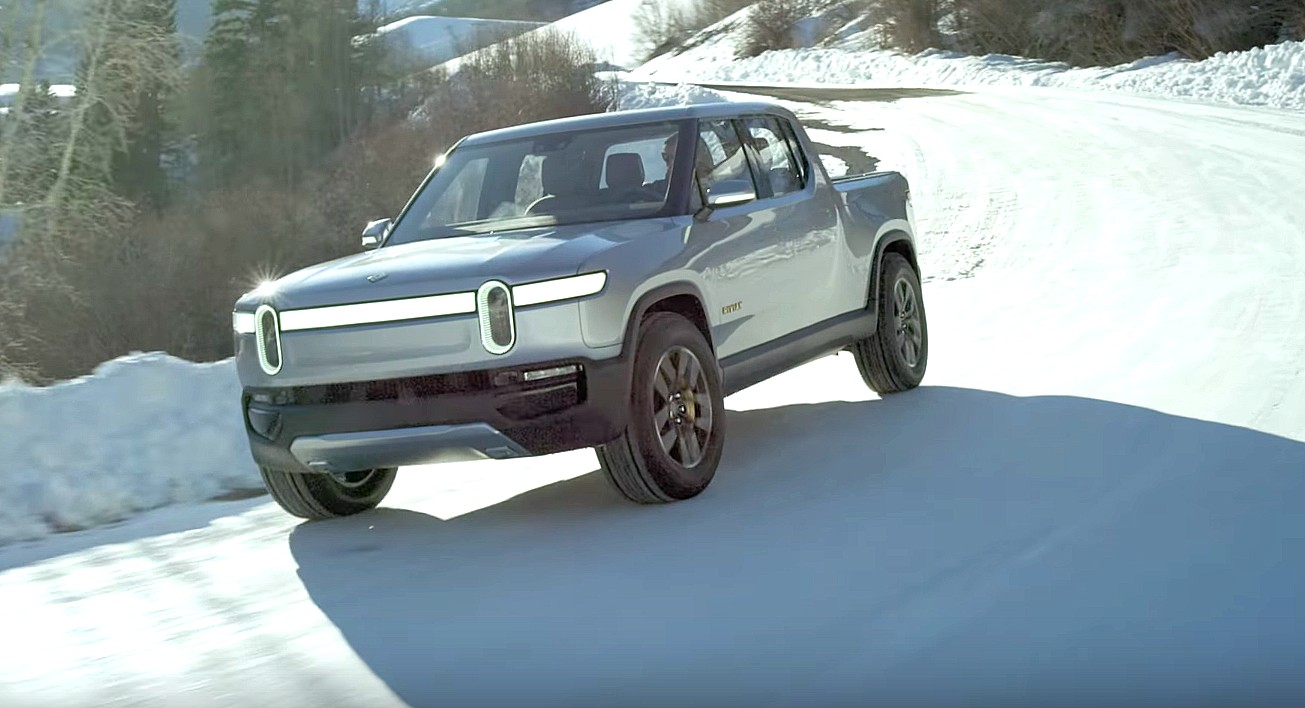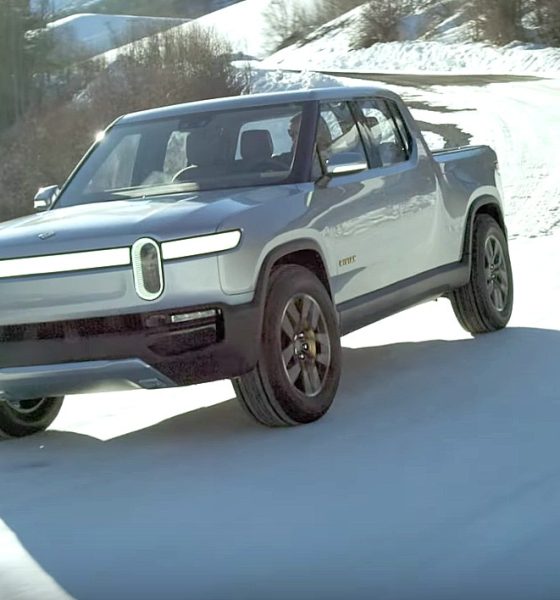Updated 6:35 PM ET: Rivian statement added and lede and headline updated for accuracy.
Rivian Automotive said it would recall 502 2022 R1T all-electric trucks in a recall issued by the NHTSA on May 10. The R1T may have improperly calibrated front passenger airbags due to a miscalibrated seat sensor, a defect that will require Rivian to replace the front passenger seat free of charge.
“Rivian Automotive, LLC (Rivian) is recalling certain 2022 R1T vehicles,” the recall summary on the NHTSA website states. “The Occupant Classification System (OCS) may not deactivate the airbag when a child or child seat occupies the front passenger seat. As such, these vehicles fail to comply with the requirements of Federal Motor Vehicle Safety Standard number 208, ‘Occupant Crash Protection.’”
The recall will require R1T owners to visit any of the automaker’s service centers across the country for a free replacement of the entire front passenger seat.
In the Safety Recall Report issued by the agency, it said Rivian vehicles produced from September 21, 2021, to May 12, 2022, would be possibly affected by the airbag defect. Rivian stopped building vehicles with suspect seat assemblies on May 12. The population of 502 vehicles was determined by supplier seat manufacturing records, seat calibration data, and Rivian component traceability information. “Due to a defect during supplier manufacturing of the seat, the calibration of the OCS does not perform consistently,” the description of the cause said.
Rivian lists its supplier for the tainted part as Hyundai Transys Michigan, LLC. According to the filing, “In March 2022, deviations in the OCS performance were identified in the seat production by Rivian. Subsequently, the calibration system was investigated to evaluate root cause.” MGA Research Corporation then provided Rivian with a report in April 2022 that included test results that indicated the airbag may not be automatically deactivated when it was tested. Rivian said that it is not aware of any accidents or injuries related to the issue.
Rivian told Teslarati:
”Rivian has determined that on certain R1T vehicles, the front passenger seat may not deactivate the front passenger airbag as required if a child seat or child is in that seat. In the event of a crash which deploys the front passenger airbag, a seat with this improper calibration may increase the risk of injury for any child or child seat occupant sitting in the seat. We are contacting those with affected Rivian vehicles, and they will receive a passenger seat replacement free of charge at a Rivian service center. In the meantime, infants and children should not be placed in the front passenger seat of affected Rivian vehicles until a front passenger seat replacement is complete.”
The risk of safety caused by the airbag is due to the possible deployment of an airbag if a child or child seat occupies the front passenger seat of the vehicle. Airbags are dangerous for children age 12 and younger, according to the CDC. The agency also recommends never putting a rear-facing car seat in front of an airbag, as front passenger airbags can injure or even kill young children in the event of a crash.
Rivian will also be reimbursing owners for previous out-of-pocket repairs. However, the OCS and passenger seat for vehicles affected in the recall also are covered under the automaker’s 5-year/60,000-mile limited warranty.
Rivian will begin notifying affected customers not to seat children or child seats in the front passenger seat of affected vehicles as soon as possible through text, emails, and in-vehicle messaging. Rivian’s notifications will mail to owners starting on or before July 1.
I’d love to hear from you! If you have any comments, concerns, or questions, please email me at joey@teslarati.com. You can also reach me on Twitter @KlenderJoey, or if you have news tips, you can email us at tips@teslarati.com.

News
Tesla is making two big upgrades to the Model 3, coding shows
According to coding found in the European and Chinese configurators, Tesla is planning to make two big upgrades: Black Headliner offerings and a new 16-inch QHD display, similar to that on the Model Y Performance.
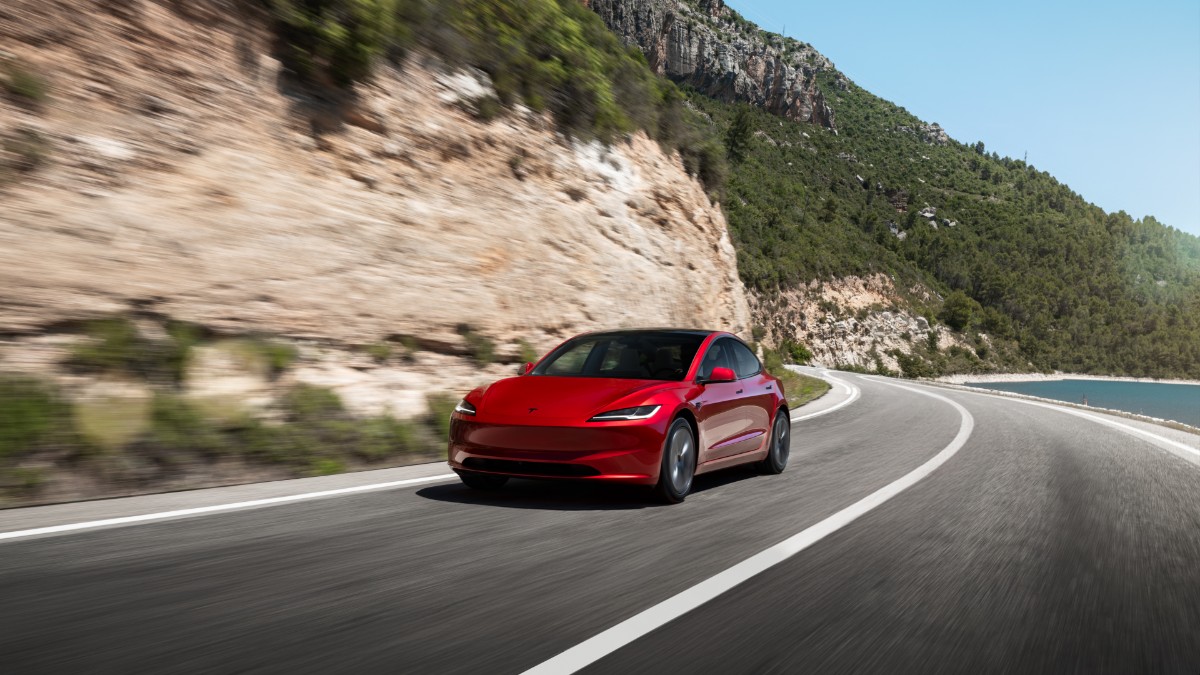
Tesla is making two big upgrades to the Model 3, one of which is widely requested by owners and fans, and another that it has already started to make on some trim levels of other models within the lineup.
The changes appear to be taking effect in the European and Chinese markets, but these are expected to come to the United States based on what Tesla has done with the Model Y.
According to coding found in the European and Chinese configurators, Tesla is planning to make two big upgrades: Black Headliner offerings and a new 16-inch QHD display, similar to that on the Model Y Performance.
These changes in the coding were spotted by X user BERKANT, who shared the findings on the social media platform this morning:
🚨 Model 3 changes spotted in Tesla backend
• New interior code: IN3PB (Interior 3 Premium Black)
• Linked to Alcantara-style black headliner
• Mapped to 2026 Model 3 Performance and Premium VINs• EPC now shows: “Display_16_QHD”
• Multiple 2026 builds marked with… pic.twitter.com/OkDM5EdbTu— BERKANT (@Tesla_NL_TR) February 23, 2026
It appears these new upgrades will roll out with the Model 3 Performance and Tesla’s Premium trim levels of the all-electric sedan.
The changes are welcome. Tesla fans have been requesting that its Model 3 and Model Y offerings receive a black headliner, as even with the black interior options, the headliner is grey.
Tesla recently upgraded Model Y vehicles to this black headliner option, even in the United States, so it seems as if the Model 3 will get the same treatment as it appears to be getting in the Eastern hemisphere.
Tesla has been basically accentuating the Model 3 and Model Y with small upgrades that owners have been wanting, and it has been a focal point of the company’s future plans as it phases out other vehicles like the Model S and Model X.
Additionally, Tesla offered an excellent 0.99% APR last week on the Model 3, hoping to push more units out the door to support a strong Q1 delivery figure at the beginning of April.
Elon Musk
SpaceX secures FAA approval for 44 annual Starship launches in Florida
The FAA’s environmental review covers up to 44 launches annually, along with 44 Super Heavy booster landings and 44 upper-stage landings.
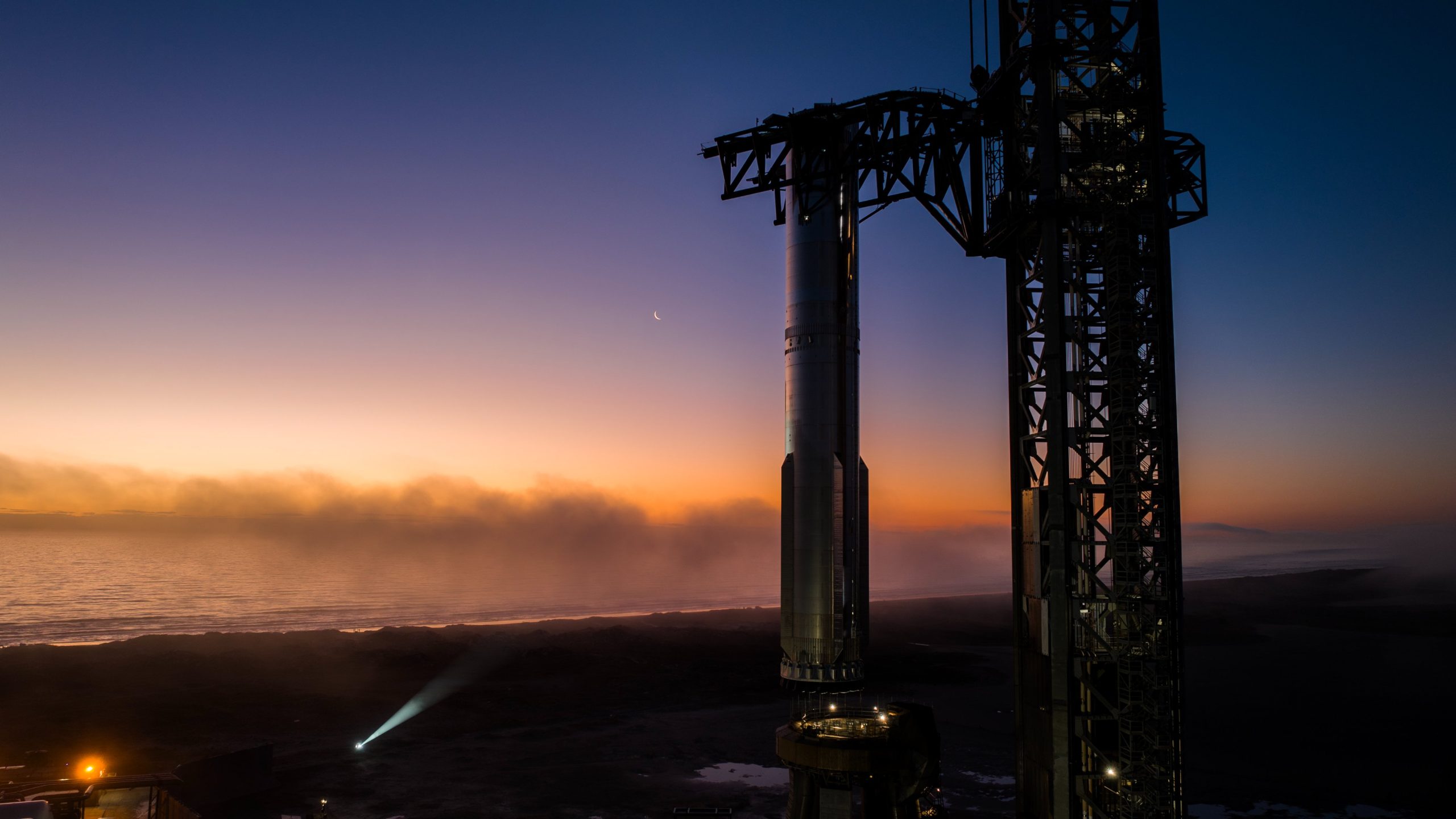
SpaceX has received environmental approval from the Federal Aviation Administration (FAA) to conduct up to 44 Starship-Super Heavy launches per year from Kennedy Space Center Launch Complex 39A in Florida.
The decision allows the company to proceed with plans tied to its next-generation launch system and future satellite deployments.
The FAA’s environmental review covers up to 44 launches annually, along with 44 Super Heavy booster landings and 44 upper-stage landings. The approval concludes the agency’s public comment period and outlines required mitigation measures related to noise, emissions, wildlife, and airspace management.
Construction of Starship infrastructure at Launch Complex 39A is nearing completion. The site, previously used for Apollo and space shuttle missions, is transitioning to support Starship operations, as noted in a Florida Today report.
If fully deployed across Kennedy Space Center and nearby Cape Canaveral Space Force Station, Starship activity on the Space Coast could exceed 120 launches annually, excluding tests. Separately, the U.S. Air Force has authorized repurposing Space Launch Complex 37 for potential additional Starship activity, pending further FAA airspace analysis.
The approval supports SpaceX’s long-term strategy, which includes deploying a large constellation of satellites intended to power space-based artificial intelligence data infrastructure. The company has previously indicated that expanded Starship capacity will be central to that effort.
The FAA review identified likely impacts from increased noise, nitrogen oxide emissions, and temporary airspace closures. Commercial flights may experience periodic delays during launch windows. The agency, however, determined these effects would be intermittent and manageable through scheduling, public notification, and worker safety protocols.
Wildlife protections are required under the approval, Florida Today noted. These include lighting controls to protect sea turtles, seasonal monitoring of scrub jays and beach mice, and restrictions on offshore landings to avoid coral reefs and right whale critical habitat. Recovery vessels must also carry trained observers to prevent collisions with protected marine species.
Elon Musk
Texas township wants The Boring Company to build it a Loop system
The township’s board unanimously approved an application to The Boring Company’s “Tunnel Vision Challenge.”
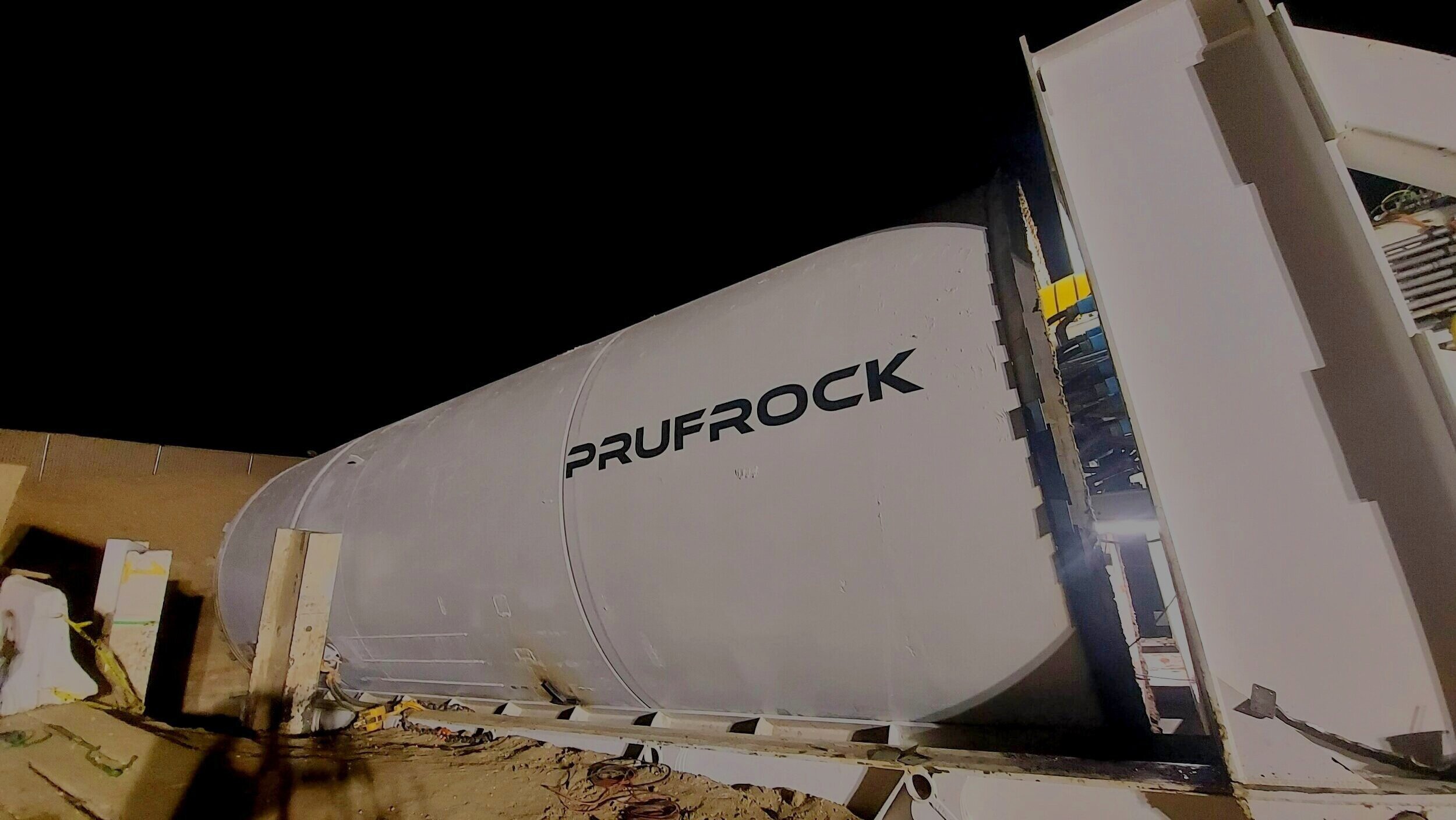
The Woodlands Township, Texas, has formally entered The Boring Company’s tunneling sweepstakes.
The township’s board unanimously approved an application to The Boring Company’s “Tunnel Vision Challenge,” which offers up to one mile of tunnel construction at no cost to a selected community.
The Woodlands’ proposal, dubbed “The Current,” features two parallel 12-foot-diameter tunnels beneath the Town Center corridor near The Waterway. Teslas would shuttle passengers between Waterway Square, Cynthia Woods Mitchell Pavilion, Town Green Park and nearby hotels during concerts and large-scale events, as noted in a Chron report.
Township officials framed the tunnel as a solution for the township’s traffic congestion issues. The Pavilion alone hosts more than 60 shows each year and can accommodate crowds of up to 16,500, often straining Lake Robbins Drive and surrounding intersections.
“We know we have traffic impacts and pedestrian movement challenges, especially in the Town Center area,” Chris Nunes, chief operating officer of The Woodlands Township, stated during the meeting.
“The Current” mirrors the Loop system operating beneath the Las Vegas Convention Center, where Tesla vehicles transport passengers through underground tunnels between venues and resorts.
The Boring Company issued its request for proposals (RFP) in mid-January, inviting cities and districts to pitch local uses for its tunneling technology. The Woodlands must submit its application by Feb. 23, though no timeline has been provided for when a winning community will be announced.
Nunes confirmed that the board has authorized a submission for “The Current’s” proposal, though he emphasized that the project is still in its preliminary stages.
“The Woodlands Township Board of Directors has authorized staff to submit an application to The Boring Company, which has issued an RFP for communities interested in leveraging their technology to address community challenges,” he said in a statement.
“The Board believes that an underground tunnel would provide a safe and efficient means to transport people to and from various high-use community amenities in our Town Center.”
